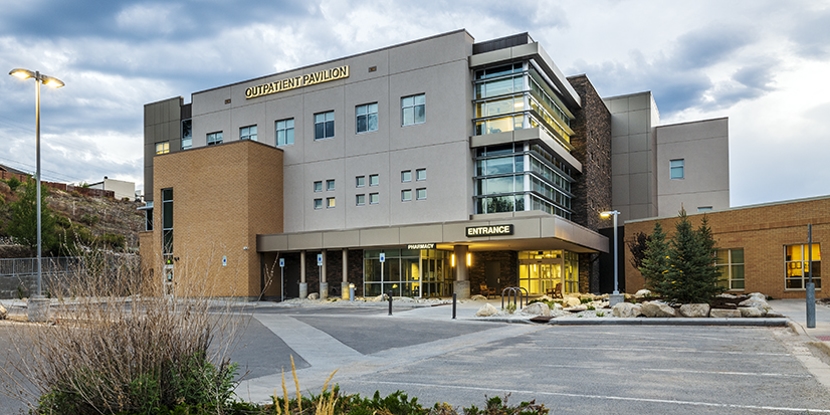Cardiopulmonary, Neurodiagnostic and Sleep Lab
Heart and lung assessments and treatment

Cardiopulmonary services are designed to help the heart and lungs perform their jobs at maximum efficiency.
The HRRMC Cardiopulmonary Department is open for daily outpatient appointments, and has a cardiology technician/respiratory therapist on call 24/7 for inpatients and any emergencies. We use cutting-edge scanning and diagnostic tools to find out exactly how a patient’s system is functioning, and when necessary, create an appropriate treatment plan.
Our knowledgeable staff members help patients manage heart and lung diseases through supervised exercise programs and education services. Individuals who have recently suffered a heart attack or underwent heart surgery can greatly benefit from cardiopulmonary services.
To schedule an appointment: (719) 530-2396
Fax: (719) 530-2282
Monday - Friday, 9 a.m. - 5 p.m.
On-call 24/7
Cardiology services
Our cardiology diagnostic tools include:
- Electrocardiogram (EKG) - Scans for abnormal heart rates and sudden changes in heart rhythms.
- Cardiac Stress Test - Another form of EKG where a patient performs light exercise on a treadmill while a doctor monitors stress on the heart.
- Echocardiogram - An ultrasound of the heart that evaluates heart valves, blood flow, and circulation; also shows if the heart has become enlarged as a result of a heart attack or smoking.
- Stress Echocardiogram - An echocardiogram taken after light treadmill exercise used to diagnose the cause of pain or shortness of breath.
- Electromyography (EMG) - A diagnostic procedure that assesses the health and function of muscles and the nerve cells that control them (motor neurons). EMGs are utilized to identify nerve dysfunction, muscle dysfunction or problems with nerve-to-muscle signal transmission.
- Electroencephalogram (EEG) - A test that can be used to diagnose several types of brain disorders. These studies can measure electrical activity in your brain and its response to certain stimuli, such as sound, sight or touch.
- Heart monitors - A monitor patients can wear outside of the hospital that records heart rate and helps doctors find the cause of chest pain or shortness of breath.
Once a problem is diagnosed, a physician may recommend you attend our Cardiac Rehab program. Here you will have help creating diet and exercises that address your specific condition.
Pulmonary services
When a patient’s ability to breathe is impaired, their entire quality of life suffers. Our pulmonary therapists administer tests and treatments to help the lungs recover.
- Pulmonary Function Test - Measures the lung capacity of asthma patients, smokers and patients suffering for shortness of breath. Tests may include lung volume and diffusion tests, which measure how much oxygen is absorbed by the lungs.
- Six-Minute Walk Tests - This test measures lung impairment, looking at functional exercise capacity and hypoxemia in patients with chronic lung disease.
Inpatient services offered - the following services are only offered while hospitalized and are not available in an outpatient setting:
- Routine Nebulizer Treatment - Used for patients with asthma or emphysema, this treatment dilates the bronchial tubes so more oxygen can reach the lungs.
- Croup Tents - Vaporizers envelop the patient in oxygen and mist to treat croup, bronchitis, or pneumonia.
- Mist Treatments - Administered to patients with pneumonia, asthma, chronic bronchitis, emphysema, bronchial hygiene, cystic fibrosis, and patients recovering from surgery. Loosens secretions and helps the patient breathe easier.
Other treatments for lung disease include enrollment in our Pulmonary Rehab Program or working with a respiratory therapist.
Sleep studies
HRRMC offers diagnostic sleep studies in two cozy sleep labs located in our Cardiopulmonary Department. To learn more, click here.

